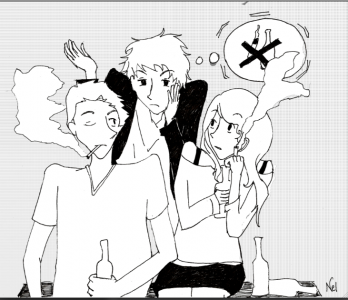
Lately, I haven’t liked what I’ve been seeing on Facebook.
I inevitably find in my newsfeed pictures of drunken classmates holding a can of Keystone Light in one hand and a can of Four Loko in the other.
Frankly, it’s horrifying.
I’m not entirely sure why so many kids my age choose to drink excessively—or at all, for that matter. This isn’t to say that I think that we should wait to taste alcohol until we’re 21 (I’ve had a few sips of wine and champagne at family celebrations myself), but I find it disgraceful that some teenagers decide to get completely wasted weekend after weekend.
The most absurd Facebook photos are the ones where teenagers think they’re masking the fact that they’re drinking alcohol, as if it’s extremely difficult to see the 17 bottles of vodka and innumerable shot glasses amidst the three bottles of Gatorade.
I’ve made a personal decision not to drink outside of my parents’ consent, simple as that.
When you finish laughing and judging me as a goody-two-shoes, you might as well find out why.
First of all, um, it’s illegal. The legal age of alcohol consumption in America is 21. No student at Staples is 21 or over. I understand the teenage urge for rebellion and resistance of the law, but it’s really astounding to me how many kids disregard the illegality of this act.
Secondly, the teenage brain is still developing. I know we like to think that we’re adults already, but while some kids seem to have achieved a high maturity level, ultimately, we’re still growing physiologically.
In a recent study conducted by neuroscientist Susan Tapert of the University of California, San Diego, in which Tapert compared the brain scans of teenagers who drink heavily with scans of those who don’t, it was found that binge drinkers did worse on thinking and memory tests than the ones who did not drink. Regardless of what teenagers may think, our bodies and minds are developing, and drinking during this critical time can have a lifelong impact.
Thirdly, getting drunk lowers inhibitions and causes teenagers to do things they wouldn’t ever consider doing sober. Drinking causes poor judgment, and often reckless choices are made—one of the most notable being the decision to drink and drive.
According to Students Against Destructive Decisions (SADD), an organization dedicated to preventing destructive decisions by teenagers, “motor vehicle crashes remain the number one cause of death among youth ages 15-20.” It’s a truly tragic statistic—one that we seriously need to recognize and commit to changing.
In the community where I lived before moving to Westport—a town not unlike Westport in size and affluence—teen deaths caused by drinking and driving happened at least once every year. My very last night in that Rhode Island town, there was a fatal boating accident in the river by my house involving a group of intoxicated high school guys. The kid driving the boat ran right over his friend, killing him instantly. It’s a haunting memory that will stay with me forever.
Some argue that teenagers should be allowed to drink because they need to relieve stress, or because it’s ultra-difficult not to succumb to peer pressure.
Okay, are you kidding? I would be thrown out of my house if I was going around saying “I’m really stressed out, so I’m gonna go chug some beers!” I mean, really? I am stressed, and I know a lot of my fellow classmates are too, but to rely on alcohol as a stress reliever is honestly just plain stupid. Teens shouldn’t have to turn to alcohol to relieve their stress. Instead, teenagers can find their outlet, whether it’s playing a sport, painting, reading, writing, listening to music, or whatever works for them. I’m 100 percent certain everyone can find something besides drinking to help relieve their stress.
I truly think we could end the dangerous coercion of peer pressure if we simply curbed teenage drinking. Can’t get pressured into it if no one’s doing it in the first place, right?
If we as teens took some initiative and showed some restraint, perhaps we could be the generation that puts a stop to this epidemic.


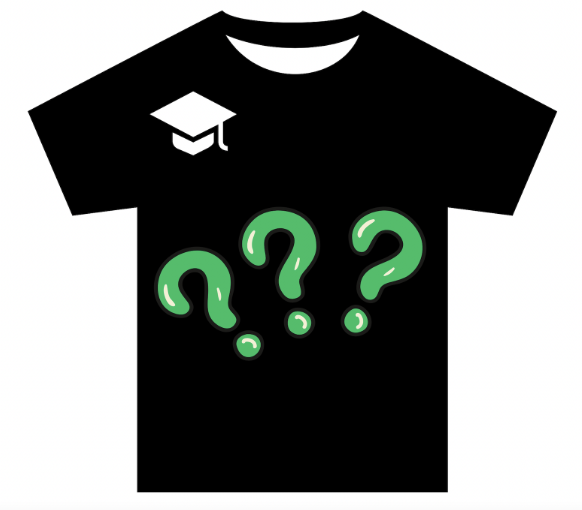

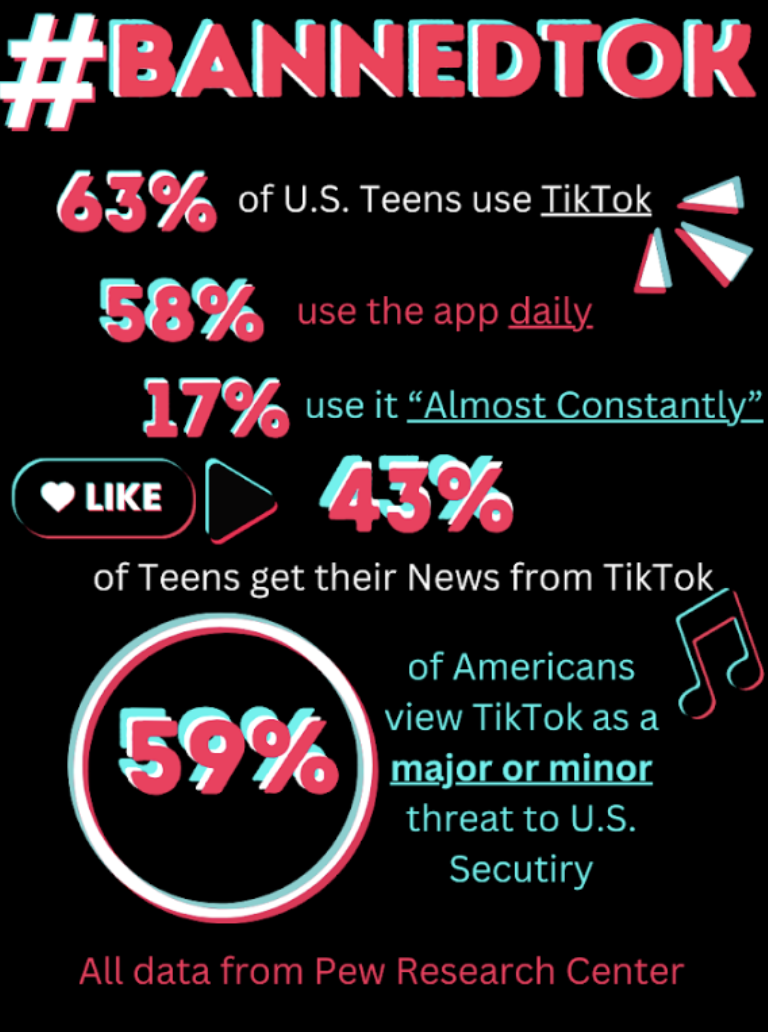






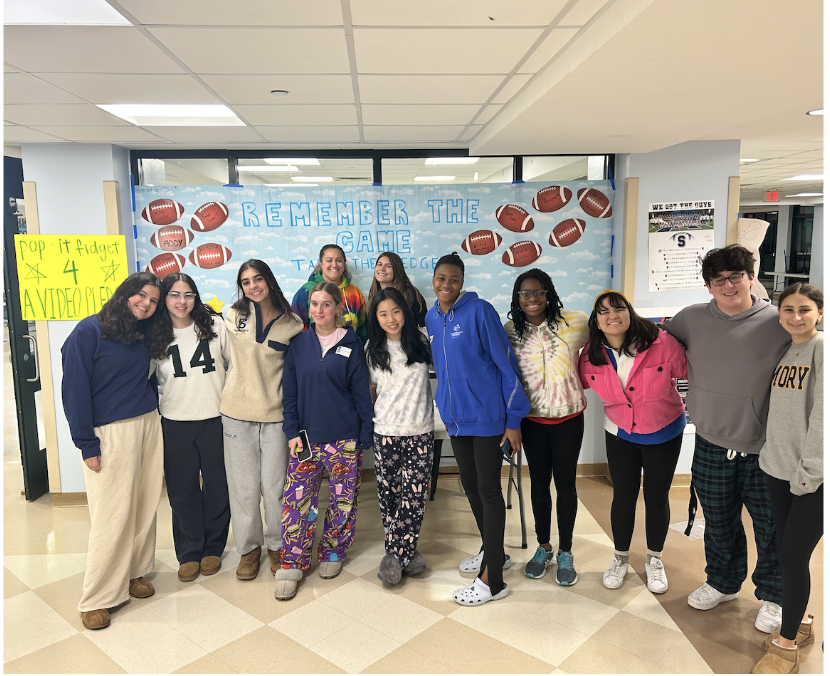




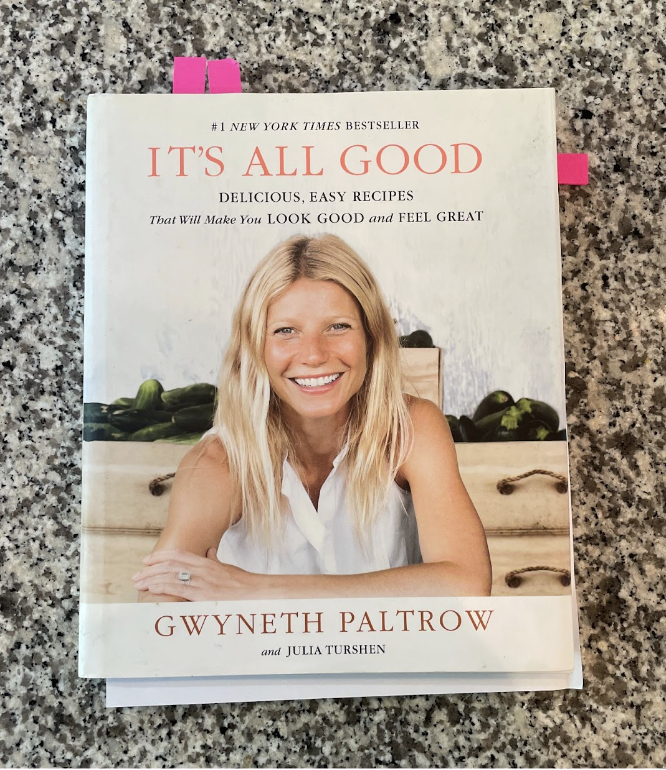






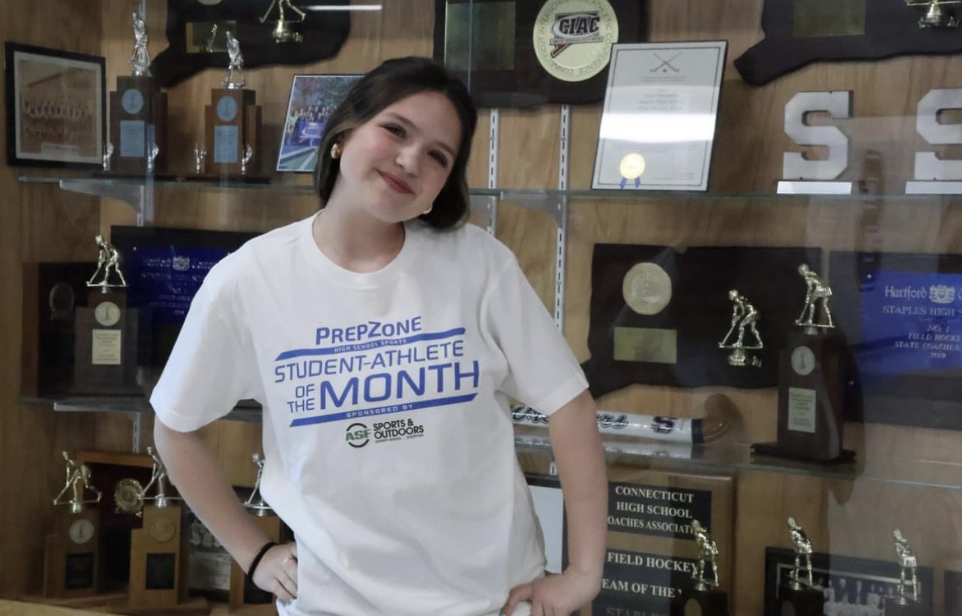
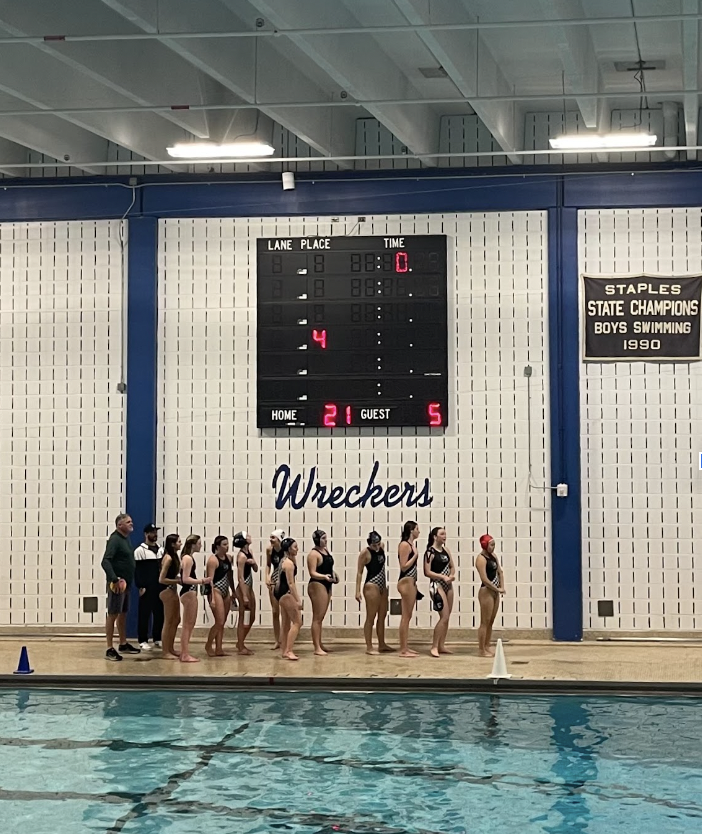

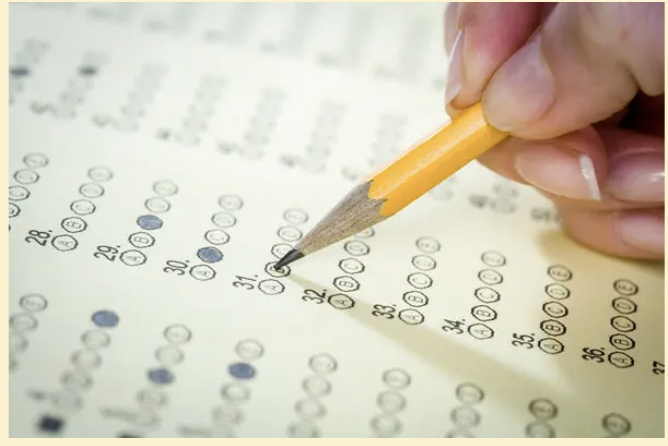
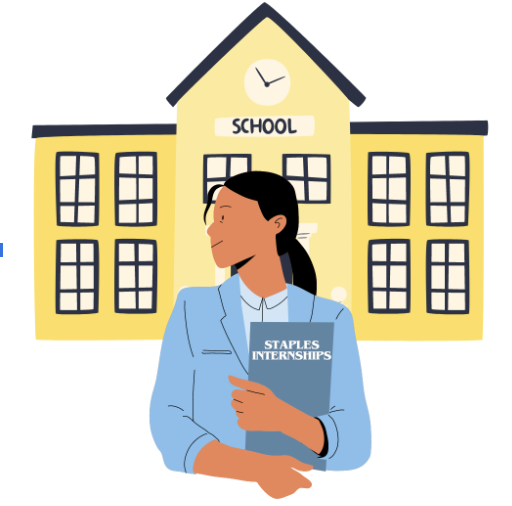
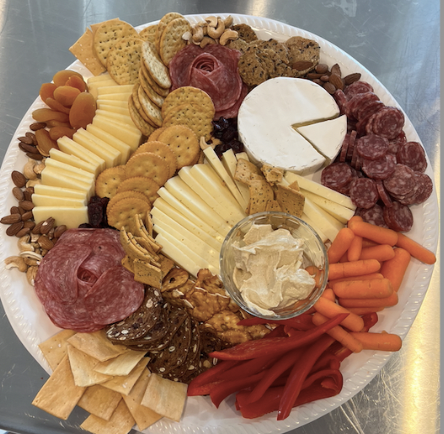
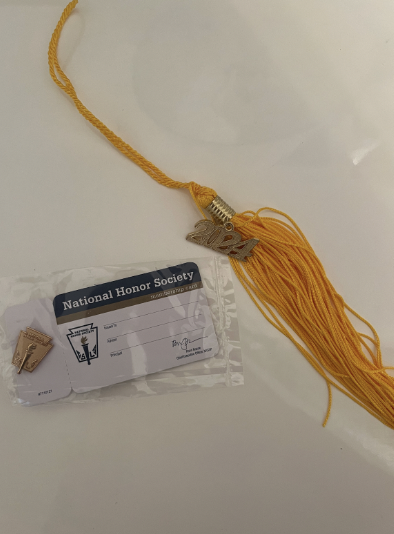
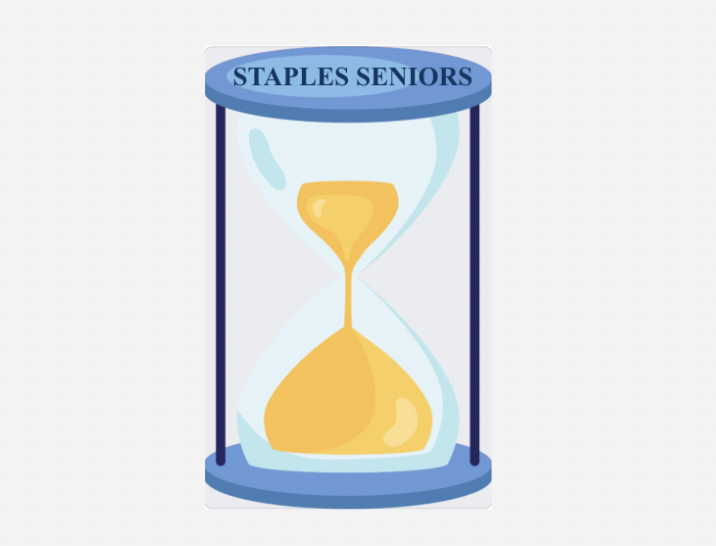















Coach Shamas • Oct 12, 2011 at 1:18 pm
As a professional gym teacher, I can prove to you that alcohol is in fact bad for the teenage body. I have studied it numerous times in my evening physical education informative classes, and the alcohol inebriation that can often be created makes pickleball and floor hockey much harder to play effectively in class. Not only that, it can hurt the mind, just as you say Ben. So I support this article and thank you for bringing awareness to this issue. If you ever want to talk, please feel free to stop by my office.
Mark • Aug 15, 2011 at 9:10 pm
You know what Ben, I may have said some not nice things on this comments section, but I’m sorry. You’re a good kid.
Sup? • Apr 22, 2011 at 1:45 pm
ben stop…. once you get to college you are going to get super SMASHED (wasted) and end up in a hospital. learn to drink in high school that way you dont over do it in college. You think i am kidding…. but i am not! not knowing your limit prior to college is very dangerous! Many countries drinking age is 18 because its really not that much more harmful then picking up a weapon being flown overseas, then watching your friends die… or getting killed. talk about something that really messes with your frontal lobe O.o
ND • Mar 27, 2011 at 4:22 pm
i think BOB NA needs his head check i mean seriously who drinks four loko every morning??????? i highly doubt u do this as u would be stumbling around drunk in the school hallways. Anyway, Ben should not have written an article on a touchy subject and if teens want to get wasted so be it. u shouldn’t be writing about it and offending like 90% of the staples population
Hasheem Thabeet • Mar 21, 2011 at 10:36 pm
Although this article is full of countless irrational thoughts, pure unnecessary dramatization, as well as a topic that frankly not a single person at Staples High School cares about, I’d like to point out one thing…”Frankly, it’s horrifying.” Are you kidding me? You feel a sense of fear because you have come across one exceptional photo of someone that happens to be holding two alcoholic beverages? Get over yourself and your sense of self-righteousness. If this person was a “peer” of yours (aka someone who has no idea who you are, but you feel the need to take an action of theres and turn it into this ridiculous article), then you must know at least something about them, right? Let me ask you something Benjamin, did WestportNow have a headline the next day maybe along the lines of “Teen involved in DUI” or “Teen is sent to the hospital due to alcohol poisoning”? Something you fail to realize is, although underage drinking with high schoolers may be done in a less formal way, it in no way means that everyone who happens to drink a beer at friends house by means of a ping pong ball and loud music is going to harm themselves or others.
Not to beat a dead horse, but you say that students “rely on alcohol as a stress reliever” is like me saying this article is of worth…which is a lie. Remember how you’re horrified of the things students do on the weekends? Well that would lead me to believe you wouldn’t necessarily converse with these wastes of life forms. So unless you were eavesdropping (something i would not be absolutely surprised about, given the circumstances) you would have no idea the intentions students have as to why they drink. Yeah, i drink. Excuse me for being that piece of garbage who makes up the nearly 80% of high schoolers that do. Not that joining the status-quo is necessary, but then again going to this length to prove to people that you’re a good little boy and are raised in an obviously superior house than others is simply unnecessary. By the way, Benny, if you’re so in the know about what people do on the weekends, you would have seen by now that some of Staples’ hardest working, and most successful students DRINK BEER. HOW DARE THEY >:0. Too bad they’ll have to go to Ivy League schools, or to other colleges through athletic scholarships. That always sucks. Quiet down, Ben.
Part 2 of this novel drops May 13th, 2014
IDrinkALotNot • Mar 17, 2011 at 8:44 am
Hello Ben,
This is the best article I have ever seen come from Inklings. I loved your use of illogical thinking, as it helped to show precisely how teenagers act in society. It was beautiful to read about your nasty tone as you pick apart your fellow classmates, as it really helped me to connect with you. Don’t listen to people like Gladiator, they only have the intelligence to pick this article apart. If I were you, I would submit this to the New York Times and hope that they publish in the Connecticut section. I would love to read it and see the public reaction across the country. Wonderful writing, and I hope to see much much more in the future. This is by far the most entertaining and informative article I have read in years. Thank you for the public awareness, and the hope that you present to the Westport community. It is about time that we had someone stand up for the people that don’t have time to have friends, so I dearly thank you for finding publicly standing up for what you believe in.
Alex Ludel • Mar 8, 2011 at 10:50 am
I think this article is brilliant 😀 🙂 😉 Love, Alex 😉 <3
Nicholas Weiner • Feb 27, 2011 at 1:43 pm
I’ll admit, I enjoy partying and getting drunk – the excitement of it, it’s there, and that’s why so many people between the ages of 15-25 do it. But I’m a senior in college, and the excitement factor from my drinking peaked two years ago. And I drink because I have a legitimate opportunity to – not to relieve stress, or anything like that. Oh, and should I add I attended parties when I was at Staples, but not once did I get drunk as a high school student. That of course changed when I went to college, but soon will come a time I’ll think back at how stupid I was in those photos.
pretty much everybody • Jan 25, 2011 at 10:09 pm
good article; nasty tone.
commendable that you express your opinion on that issue, but really dude, if you’re gonna condescend, don’t make the vast majority the victim of it… it makes you sound like you’re trying to troll the entirety of staples at once.
also, “Okay, are you kidding? I would be thrown out of my house if I was going around saying ‘I’m really stressed out, so I’m gonna go chug some beers!'”
if this is true then you, my friend, have bigger things to worry about than teen drinking…
and a tip from a fellow writer: as to not be dismissed on your next article like this, conduct interviews first because you severely lack background knowledge.
pretty much everybody • Jan 25, 2011 at 10:09 pm
good article; nasty tone.
commendable that you express your opinion on that issue, but really dude, if you’re gonna condescend, don’t make the vast majority the victim of it… it makes you sound like you’re trying to troll the entirety of staples at once.
also, “Okay, are you kidding? I would be thrown out of my house if I was going around saying ‘I’m really stressed out, so I’m gonna go chug some beers!'”
if this is true then you, my friend, have bigger things to worry about than teen drinking…
and a tip from a fellow writer: as to not be dismissed on your next article like this, conduct interviews first because you severely lack background knowledge.
Jack Daniels • Dec 31, 2010 at 10:54 pm
I’m really stressed out, so I’m gonna go chug some beers!
Take a step back • Dec 20, 2010 at 10:59 pm
I feel like people are not really realizing WHY he wrote this article and are therefore missing the point. There IS a drinking problem at Staples High School. Lay off the kid for being the first one to bring it up in a while even after we managed to make ourselves look pretty and perfect for the homecoming game where somebody DIDN’T almost die. I found it embarrassing how Staples applauded the students for not getting their stomachs pumped after this year’s homecoming. These comments are all one big case of shooting the messenger, since we all know that there really is still a problem at Staples. We just like to think it looks better if it remains on Facebook, people don’t talk about it in the Westport community, and people don’t get seriously injured, as is inevitable.
What up home dog? • Dec 20, 2010 at 5:33 pm
Ben,
This must be hard to deal with- all this meaningless criticism and people such as the Gladiator. I understand- come by my house and we’ll talk about it over some beer and some weed to finish it off.
Yours Truly,
Blunt Kid
What up home dog? • Dec 20, 2010 at 5:33 pm
Ben,
This must be hard to deal with- all this meaningless criticism and people such as the Gladiator. I understand- come by my house and we’ll talk about it over some beer and some weed to finish it off.
Yours Truly,
Blunt Kid
Ben Platt • Dec 19, 2010 at 1:08 pm
Hey Ben
I’m extremely happy for you and your opinion. I’m sorry on behalf of all of my friends that might say some harsh and hurtful things to you because of this. I deeply apologize and I agree with the article. We should stop teenage drinking now! It’s an awful, awful thing, especially when people throw parties and everyone’s drunk; it’s just bad.
By the way, we have the same name! Isn’t that awesome!
Well, I’ll be studying, but hopefully you will continue to stand behind this article and ignore all of the mean comments!!!!!!
Cheers to non-drinkers! Drinking is bad! Sarah Palin 2012!!!!
— Ben Platt ’12
Gladiator • Dec 19, 2010 at 12:23 pm
OMG Ben! What a great article. It has to be, like, the best piece of writing since Going Rogue! But I think there is another problem at Staples that absolutely posi-tute-ly must be addressed – Teenage Eating. Allow me to explain:
Recently, I haven’t liked what I’ve been seeing in the cafeteria.
Period after period, as I stroll through the freshman ghetto I find teenagers of all ages holding a stick of fat covered in white bread in one hand and a reprocessed “meat” patty of some kind in the other.
Frankly, it’s horrifying.
I’m not entirely sure why so many kids my age choose to eat excessively – or at all, for that matter. This isn’t to say that I think we should wait to taste food until we’re 21 (I’ve nibbled on some paninis during 3rd lunch myself), but I find it disgraceful that some teenagers decide they have to eat food every single day of the week.
The most absurd lunches are the ones where teenagers try to pretend they are eating actual food instead of mashed up animal droppings. Emo salad girl, I’m talking to you; When you measure the amount of Ceasar dressing on your salad in frikken’ gallons your salad CEASES TO CARRY HEALTH BENEFITS! You might as well give in and eat the dang chicken genitalia they serve every Friday.
I’ve made a personal decision to not eat and to obtain all of my nourishment from an Intravenous Drip in my arm, simple as that.
When you finish laughing and judging me as a 4chan-esque troll, you might as well find out why.
First of all, the teenage stomach is still developing. I know we like to think we’re adults already, but while some kids seem to have achieved a stomach of steel, ultimately, our stomachs are still trying to figure out what the heck is going on.
In a recent study conducted by SABR (Students Against Ben Reiser), nearly 93% of students who eat meals on a regular basis did worse on thinking and memory tests than students who study every single second of their lives in a vain attempt to get into an Ivy League. Regardless of what teenagers may think, our bodies and minds are developing, and grabbing a bite to eat instead of studying during this critical time can have a lifelong impact on your miserable little life.
Secondly, eating food lowers inhibitions and causes teenagers to do things they wouldn’t ever consider doing while on an IV Drip. The cafeteria causes poor judgment, and often reckless choices are made – one of the most notable being the decision to eat and drive.
According to me, an organization dedicated to preventing teenagers from writing sub-par newspaper articles for the sole purpose of sprucing up a college resume, “food poisoning originating from the dehydrated rat vomit used in the Pina Colada smoothies is the #1 cause of vomit in the freshman ghetto.” It’s a truly tragic statistic – one that we seriously need to recognize and commit to changing.
In Westport – a town not unlike this one in size and affluence – deaths caused by eating and driving happened at least every once and a while.
Once when I was getting my IV Drip changed at the local hospital, there was a fatal boating accident in the river by a house that was way too expensive for regular people to afford. The kid driving the boat had just eaten one of the schools breakfast sandwiches, which caused him to throw up violently on the wheel and lose control of the boat, and he drove right over his friend, killing him instantly. This completely pointless and irrelevant story is a haunting memory, one that I will surely write about in at least 4 of my college application essays.
Some argue that teenagers should be allowed to eat because they need to relieve stress, or because food is an ultra important basic necessity of survival.
Okay, are you kidding? I would be thrown out of my house if I was going around saying, “I’m going to die of starvation, so I’m going to go eat a delicious sweet and sour and bitter wrap!” I mean, really? I am going to die of starvation, and I know a lot of my fellow classmates are too, but to rely on food as a means of survival is honestly just plain stupid. Teens shouldn’t have to turn to “Onion Flavored Snack Food” (aka Funions) to survive. Instead, teenagers can find their outlet, whether it’s playing a sport, painting, writing terrible satires, reading, insulting Ben Reiser’s terrible articles, listening to music, dancing, dancing on the spot of Ben Reiser’s future grave, wearing a bow-tie, or whatever works for them. I’m 100 percent certain everyone can find something besides eating to help satiate their basic human hunger.
I truly think we could end the dangerous coercion of peer pressure if we simply stopped serving food at Staples altogether. Can’t be tempted by delicious strips of potato covered in grease if the aren’t even being served in the first place, right?
If we as teens took some initiative and showed some restraint, perhaps we could be the generation that puts a stop to this epidemic.
As a side note, if you think my very very serious piece of writing wasn’t very good, blame my English teachers. I’m just another regular kid being failed by our school’s policy of pushing the smart kids towards Ivy Leagues and leaving everyone who isn’t a science or math genius to fend for their own at NCC.
George • Dec 19, 2010 at 1:54 pm
give this man an upvote!
lol. • Dec 17, 2010 at 11:31 pm
“It’s a smile, it’s a kiss, it’s a sip of wine, it’s summertime.
Sweet summertime.”
FROM YOUR FACEBOOK!!!!!! A SIP OF WINE = HYPOCRITE~~!!!!!!!!!!!!!!!!!!!!!
harry potter • Dec 16, 2010 at 9:01 pm
People are allowed to make their own choices. If they make the wrongs ones, it is their own problem to deal with. Being rude and condescending to all of staples will not change people’s minds about drinking and its not your place to tell people what to do.
Yo • Dec 10, 2010 at 1:44 pm
Quite the article here.
to the 'logical student' • Dec 4, 2010 at 6:02 pm
relax logical student. all caps isn’t necessary. i understand that you’re passionate.
coin • Dec 3, 2010 at 8:46 pm
ben,
honestly ur just an ignorant little sophmore. this article is actually just dumb and pointless, stop writing about this topic. Cool, you dont drink but uve have wine and champange w/e kid. people like to drink and have fun, sorry you dont just let us be.
Logical Student • Dec 1, 2010 at 8:46 pm
sorry to be a bit harsh in my last comment
happy hannuka =)
Logical Student • Dec 1, 2010 at 8:44 pm
BEN! YOU ARE AWESOME!
PEOPLE NEED TO START REALIZING THAT DRINKING MAKES TEENAGERS STUPID. POSTING PICTURES OF YOURSELF WITH A BEER ON FB DOES NOT MAKE YOU COOL, IT MAKES YOU LOOK LIKE AN IDIOT WHO PUBLICLY SHARES HIM/HERSELF BREAKING THE LAW! I MEAN COME ON PEOPLE! POSTING PICTURES OF YOURSELF DOING ILLEGAL THINGS SO THAT THOUSANDS OF PEOPLE CAN SEE THEM IS NOT SMART! IF YOU THINK YOU NEED TO DRINK TO HAVE FUN, THEN GET A LIFE. OR ELSE, YOU WILL BECOME AN ALCOHLIC! MOST OF YOUR DRINKERS HAVE DRUGGYS ANYWAY! I MEAN SOOOOO MANY PEOPLE WHO START OUT JUST DRINKING AT PARTIES END UP TRYING POT OR DOING OTHER DEADLY DRUGS! IF YOU TRULY THINK DRINKING IS GOOD, GO GET A SHRINK BECAUSE YOU WILL END UP DEAD DUE TO BAD CHOICES.
BEN, I REALLY HOPE PEOPLE START REALIZING HOW STUPID THEY ARE BEING! I REALLY WITH WE WERE FRIENDS BEN, BECAUSE YOU SEEM LIKE ONE OF THE MOST OPEN AND HONEST PEOPLE I HAVE EVER MET. THANK YOU FOR SPEAKING OUT AGAINST THE STUPID PEOPLE AT STAPLES HIGH SCHOOL!!!!!!
Mandrake Mel • Dec 1, 2010 at 6:28 pm
I think this is an interesting column, and I’m sure Ben did not go out to incite these people who have been commenting. While I respect this article, I share the same sentiment as ‘Staples Student’ – the tone is a real issue. This article appears to portray every high school student enjoys drinking and ‘getting wasted’ every weekend – this is really not the case. I for one, do not drink, and I attend S.H.S. This article reflects students in a bad light, and it’s a shame because I’m sure there are many students out there, like myself and Ben, who chose not to drink. However, they just don’t feel the need to right an article about why they don’t drink.
Larry • Dec 1, 2010 at 4:56 pm
Ben,
I’m offended by the condescending tone you use to deal with this topic. It’s really too bad that the only people that respect you/you impress are in a large majority parents or other older people. Hopefully in the future you learn how to appeal to people your age, instead of bashing them and making it seem as though you are above them. Despite what helicopter Mommy and Daddy probably tell you about how you’re such a wonderful writer and how your such an amazing young man, none of your peers see it. Instead we see a kid who is, as someone said before me, “very self conscious and feels the need to bash kids who drink to simply justify his boring lifestyle.”
dirty dan • Nov 30, 2010 at 6:49 pm
grammar nazi, you’re actually grammatically incorrect. good try
a "non-defending" student • Nov 30, 2010 at 6:49 pm
fact: this is ben’s brother.
A Student With An Opinion • Nov 26, 2010 at 9:07 pm
I think the problem that I, and many others who read this article, are having is Ben’s extremely condescending tone towards his fellow Staples students. It is almost as though Ben thinks just because he doesn’t drink, that he is morally superior to students who do.
His use of phrases such as “First of all, um, it’s illegal” implies that he thinks students who drink are blindly unaware of the legality of their actions. This is obviously untrue- I would say it is safe to assume that every student at Staples is aware of the drinking age. The message is not the only problematic element of that statement though- it’s also the tone. This should have been written in a much more scholarly manner; using “um” was simply a device to place the author above his subjects, and was absolutely unnecessary.
I would much prefer an article written with some NEW information, rather than this rehashed, condescending, vanity piece.
chillllllllll out • Nov 25, 2010 at 1:01 pm
ok, you need to chill ben. if people feel the need to drink, that’s their business. i know this is an opinion’s piece but i am criticizing your opinion- i think it’s wrong to judge everyone who drinks and to put them all into that negative category. not everyone has the luxury of feeling content all the time like you that they don’t need to ever spice up their night
if you don’t want to drink, that’s ok. i have plenty of girl friends who don’t drink. but it’s rude to think of yourself as so above the people who choose to.
well written article–
relax…
Staples Student • Nov 24, 2010 at 4:25 pm
I think it’s unfortunate that this column represents Staples teenagers in such a bad light. It gives the impression that all of Ben’s friends are spending the weekends out drinking, when that is most certainly not true. There is no denying the fact that students in high school are drinking, but Ben is not the only one who has chosen not to drink without his parents’ consent. It seems that many students at Staples who do not drink are still said to be \disgraceful\ in the above article. A little more specificity would be appreciated on behalf of the students who are also as \pure\ as Ben claims to be.
Ellen • Nov 24, 2010 at 8:59 am
As a Westport parent, who was once actually a kid herself, I would first like to congratulate Ben on writing what he clearly knew would be a provocative article and Inklings for publishing it. As a parent, I do agree with Ben’s views, and my sense is most of the students will feel the same way when they have children of their own. There is a reason why it is illegal, and why the drinking age was raised from 18 to 21…it saves lives. While I agree that kids drink, not only to relieve stress, but also to have fun, it can and does often get excessive and that does lead to bad things. This situation is true, not only in high school, but also college. And no community, whether rich or poor, is immune to those bad outcomes. In fact, it appears as though our community just recently lost one of its finest sons due to excessive drinking…he wasn’t driving, but his senses were impaired and just had some bad luck. I don’t ever want to see that happen again in our town or any town. Congratulates Ben on your courage.
Jack • Nov 26, 2010 at 11:59 am
Actually it does not save lives… There is a much higher rate of alcohol-related deaths in the 18-21 year old age group in America than in European countries in which the drinking age is 18.
Nice try though.
Anonymous • Nov 23, 2010 at 9:22 pm
I hate all these negative PAs against the dangers of drinking. These messages are so biased. Think about it: Why should we dwell on the rare occasions when people get hurt. In reality, 99% of the time, when a person goes out and drinks nothing bad happens. In fact, he often has a great time at a great party.
Also, this article fails to mention a major why I, a high school student drink. As the article mentioned above, drinking impairs judgement. Which is great because, that means girls are waay easier to hook up with.
Jim • Nov 23, 2010 at 12:07 am
I don’t understand why it matters if kids in High-School drink. Who cares why they drink…its your own choice and as long as you don’t drink and drive it shouldn’t matter. Ben, It sounds like your taking it personal that kids drink. Kids don’t drink because their stressed, but lets say they did, why does it matter so much to you? Instead of being so defensive about it you should tell your friends you don’t drink because you don’t wanna. No one would criticize you or make fun of you. It’s not a problem that kids get drunk. Its only a problem when they drink and drive or drink to much.
From reading this it appears that you are very self conscious and you feel the need to bash kids who drink to simply justify your boring lifestyle.
Staples Student • Nov 22, 2010 at 11:02 pm
My biggest problem with this opinions article is its tone. Obviously, we should respect Ben’s opinion on teenage drinking, however the way in which he expresses this opinion is quite offensive and unfair. When Ben uses phrasing like, “I find it disgraceful that some teenagers decide to get completely wasted weekend after weekend.” or “First of all, um, it’s illegal.” or “Okay, are you kidding?” or “I mean, really?”, it suggests that Ben is superior to teenage drinkers, and quite frankly shows no sympathy for the people who let’s say DO have a drinking problem. This article has only one sentence suggesting at an opposition side to the argument, when statistics show that countries with lower drinking ages have fewer teenage fatalities due to drunk driving.
The percentage of students that drink is large, true. Obviously, in writing an article like this, you’re bound to have a reaction..
It is upsetting that a student is portraying his peers as practically alcoholics who “get wasted weekend after weekend” to the adults of the community that read Inklings. I feel offended and attacked by this article, and I don’t even drink alcohol. This article portrays my friends and my classmates as mindless drunks who prioritize getting wasted over their other pursuits. This article is just a testament to the kind of pressures that the community of Westport places on Teens. Not only do we need to be #1 in football, soccer, volleyball, theater, journalism, and overall academics, but we have to be perfectly well behaved flawless workers. This isn’t the Stepford Students, Ben. We can’t all be perfect.
Anna • Nov 22, 2010 at 10:03 pm
On one hand, I understand Ben’s point, and I think it’s completely logical. There are certainly some kids who drink for the reasons he brings up. Are there other reasons? Of course. But I think the saddening thing about all this is that people are getting caught up in the strawman arguments here.
This article, at it’s heart, is about Westport teens’ unfortunate need to bring alcohol to nearly every party.
Leroy Jenkins • Nov 22, 2010 at 8:38 pm
This is actually a good article. Everyone in the comments who is hating is only doing so because they’re afraid to admit that underage drinking is wrong and stupid. If you need to be intoxicated in order to have more fun, then you obviously have a serious problem. Ben is being completely logical here.
Setting the record straight • Nov 22, 2010 at 8:51 pm
Jenkins- Nice try. Actually two people (John Doe, and myself) have explicitly stated we don’t drink). And Ben claims teens drink to relive stress (not to have fun). Like Ben, you need to your facts straight before trying to prove a point.
Leroy Jenkins • Nov 22, 2010 at 8:38 pm
This is actually a good article. Everyone in the comments who is hating is only doing so because they’re afraid to admit that underage drinking is wrong and stupid. If you need to be intoxicated in order to have more fun, then you obviously have a serious problem. Ben is being completely logical here.
Setting the record straight • Nov 22, 2010 at 8:51 pm
Jenkins- Nice try. Actually two people (John Doe, and myself) have explicitly stated we don’t drink). And Ben claims teens drink to relive stress (not to have fun). Like Ben, you need to your facts straight before trying to prove a point.
Grammar Nazi • Nov 22, 2010 at 6:39 pm
***you’re
Setting the record straight • Nov 22, 2010 at 6:27 pm
“Ben can say what he wants”- This is true, but is what he says necessarily opinion?
Ben sounds pretty sure that “Some argue that teenagers should be allowed to drink because they need to relieve stress, or because it’s ultra-difficult not to succumb to peer pressure…teens shouldn’t have to turn to alcohol to relieve their stress.” However, this brings up questions. Exactly who argues teens should be allowed to drink to relieve stress? Who says teens use alcohol to relieve stress in the first place?
Like any good piece of writing, an opinion article can have opinion but it needs to be based on facts which back up where your evidence comes from. As I’m sure many English and History teachers have reiterated: in a good piece of writing an author shows exactly what their basing their conclusion from. The Student community is not frustrated at Ben for writing an article expressing his negative views about drinking; but rather, for reflecting upon the student body in an inaccurate, and careless manner due to simply not understanding the true nature of teenage drinking.
Mariella • Nov 22, 2010 at 4:53 pm
Ben is allowed to say whatever he wants. It’s his article. If you don’t agree with it, fine, you have the right not to. But to hate on it? Please, thats just rude and immature. Grow up people. I personally don’t agree with a lot that he is saying, but I’m not going to make him feel like crap about his article by saying he has no friends and that he’s not smart.
John Doe • Nov 22, 2010 at 3:21 pm
Ben, I, like you, do not drink. However, I feel that quite frankly, you wrote this solely to please the adults in the community, as I saw very little thought and logical reasoning in the article. I did not see a single logical reason why kids drink, and I feel that before you write something criticizing all of these kids, you should take a step back into their shoes and think about their situation. I agree drinking can potentially be bad, as do many of us, but you should know why before you start criticizing it. Congratulations on not drinking. No congratulations on failing to write a meaningful article.
Four Loko yo • Nov 22, 2010 at 2:59 pm
Ben just has no idea what’s he talking about, and thinks he is so much better, more informed than everyone else, and it pisses people off, because clearly he isn’t.
Ha • Nov 22, 2010 at 1:00 pm
heh your funny
Grammar Nazi • Nov 22, 2010 at 6:39 pm
***you’re
Bo • Nov 21, 2010 at 11:18 pm
*He covers absolutely zero reasons why SHS students drink
Bo • Nov 21, 2010 at 11:10 pm
The only reason I disagree with this article is because I think the author really doesn’t have a “pulse” on the reasons for drinking. Yeah, its not good for you… we know that. But it amazes me that this kid thinks people drink just to get wasted or to get over problems, which is not true. Most kids just drink to lighten up the mood, and most Staples kids parties doesn’t involve angry kids saying “I’m really stressed out, so I’m gonna go chug some beers!”. I also feel like if the author actually talked to or interviewed Staples kids who do drink, he might understand that. Instead, he forms personal (and inaccurate) opinions for why kids drink and states them as facts.
Overall, I think its unfair to write an article essentially criticizing why kids are drinking, when the author clearly has no idea why its happening. I would advise a little more research before your next article.
Well... • Nov 22, 2010 at 9:52 am
This is Ben’s opinions; it is a collumn, not a news article. Regardless of if you agree with him or not, do not criticize his use of opionion and lack of interviews as this is not a news article.
z • Jul 7, 2011 at 3:41 pm
yet
Bob Na • Nov 21, 2010 at 10:32 pm
hahahahahha yeah man defending student is a LOSER… have a four loko and chill out man
Setting the Record Straight (Once Again) • Nov 21, 2010 at 10:25 pm
Wasn’t the first thing I said I didn’t drink? And secondly Ben’s an idiot for guessing at why teens drink. It’s not that they purposely say “I’m stressed over this paper, lets get wasted.” And 10 bucks defending student is Ben’s brother.
Defending Student • Nov 21, 2010 at 10:10 pm
Okay, Jimmy and Setting the record straight, who do you think you are? Jimmy I’m not even going to respond to because your comment was so ridiculously unintellectual, and Setting the record straight, I hardly believe Ben’s article is “bitchy.” That’s fantastic that you think that, but if you actually want to face facts and recognize that Ben covers a lot of the reasons why kids drink and why their reasons are unjust, you might be a little more cautious before going to far as to call him “bitchy.” You might want to pick your friends a little more wisely if drinking is the only way to make the social situations you’re in with them more smoother and interesting. Get a life. Both of you.
Setting the record straight • Nov 21, 2010 at 8:50 pm
Hi Ben,
Like you, I don’t participate in drinking because it simply doesn’t appeal to me. However, this is where our similarities end. First of all, teens are aware of the medical consequences of abusing alcohol. You can’t expect that we learn absolutely nothing during health. Secondly, its not like we’re stressed out and go “This paper sucks…I’m going to get drunk as hell.” Thirdly teens don’t drink because they have an “urge for rebellion and resistance of the law.” What you probably don’t know is that during the weekend in Westport, there such things called parties. And yes, at these parties people drink, solely for the purpose of having fun with their friends because it makes social situations “smoother” and more “interesting.” While I’m not advocating drinking, I can certainly understand why those who drink, drink. And yes, drinking occurs throughout the U.S in high school parties all over. It’s not wierd to not drink, but your problem is that you have to be so outspoken about it, essentially being bitchy. And like Jimmy says, your not that smart. Teens don’t have alcohol to “relieve stress” they do it to have fun. Well I respect and agree with your viewpoint, I certainly can’t stand your bitchy attitude (neither can anyone else).
Yours Truly
Setting the record straight • Nov 21, 2010 at 8:50 pm
Hi Ben,
Like you, I don’t participate in drinking because it simply doesn’t appeal to me. However, this is where our similarities end. First of all, teens are aware of the medical consequences of abusing alcohol. You can’t expect that we learn absolutely nothing during health. Secondly, its not like we’re stressed out and go “This paper sucks…I’m going to get drunk as hell.” Thirdly teens don’t drink because they have an “urge for rebellion and resistance of the law.” What you probably don’t know is that during the weekend in Westport, there such things called parties. And yes, at these parties people drink, solely for the purpose of having fun with their friends because it makes social situations “smoother” and more “interesting.” While I’m not advocating drinking, I can certainly understand why those who drink, drink. And yes, drinking occurs throughout the U.S in high school parties all over. It’s not wierd to not drink, but your problem is that you have to be so outspoken about it, essentially being bitchy. And like Jimmy says, your not that smart. Teens don’t have alcohol to “relieve stress” they do it to have fun. Well I respect and agree with your viewpoint, I certainly can’t stand your bitchy attitude (neither can anyone else).
Yours Truly
Bob Na • Nov 21, 2010 at 3:32 pm
Ben,
I want to leave you this comment as respectful and polite as possible but it may be hard to refrain from my true thoughts. From what I’m reading it seems to me as if you are upset with your life because you have no friends to be out drinking with on the weekends. AND do not disrespect four loko it is the greatest creation of all time. I drink one every morning with my bacon and eggs (no lie). And I’m sure I’m smarter than you Ben, I’m absolootly sure. So please just go have a four loko and smoke some weed because frankly, your pissing me off.
Love,
Jimmy Neutron
That Guy • Dec 19, 2010 at 11:05 pm
Bob Na was speaking satirically. You don’t have to be a “startled ivy leaguer” to realize that.
Bob Na • Nov 21, 2010 at 3:32 pm
Ben,
I want to leave you this comment as respectful and polite as possible but it may be hard to refrain from my true thoughts. From what I’m reading it seems to me as if you are upset with your life because you have no friends to be out drinking with on the weekends. AND do not disrespect four loko it is the greatest creation of all time. I drink one every morning with my bacon and eggs (no lie). And I’m sure I’m smarter than you Ben, I’m absolootly sure. So please just go have a four loko and smoke some weed because frankly, your pissing me off.
Love,
Jimmy Neutron
Logical Student • Dec 1, 2010 at 8:48 pm
i hope you realize to make better choices. if saddens me how you think that drinking and smoking weed will solve problems. Please go get some help, i truly hope you get better.
startled ivy leaguer • Dec 1, 2010 at 10:59 pm
Wow, what you said in your comment could be one of the dumbest things that I have ever seen. I’m assuming that what you said was a joke, because what you wrote about is basically alcoholism. You should be really proud of the choices that you have made so far in your life so far that have brought you to this point, because to me it seems like you are going to be a huge success. And I doubt you caught the sarcasm Bob na.
That Guy • Dec 19, 2010 at 11:05 pm
Bob Na was speaking satirically. You don’t have to be a “startled ivy leaguer” to realize that.
Susan Clegg • Nov 21, 2010 at 7:23 am
What an absolutely to the point article. As a teacher in a High School, this is something that I hear daily. Students brag about how much they drank on the weekends as well as their escapades. It takes a brave and confident young man to be able to state their opinion as well as be true to their word.
I also felt like you did when I was in High School and although I was too shy to speak out I did hold my ground to peer pressure. I commend you for your stance on teenage drinking and I know with your background, you will be able to keep your word.
Susan Clegg • Nov 21, 2010 at 7:23 am
What an absolutely to the point article. As a teacher in a High School, this is something that I hear daily. Students brag about how much they drank on the weekends as well as their escapades. It takes a brave and confident young man to be able to state their opinion as well as be true to their word.
I also felt like you did when I was in High School and although I was too shy to speak out I did hold my ground to peer pressure. I commend you for your stance on teenage drinking and I know with your background, you will be able to keep your word.
Mark Lassoff • Nov 20, 2010 at 7:48 pm
Congratulations Ben on this brave and thoughtful editorial. This isn’t a new problem, and it saddens me to see that this reckless behavior continues 18 years after my own graduation from Staples. I felt much like you did in high school and wish I had the strength to speak out as you have here. I saw more than one of my closest friends from high school lose himself to alcohol and / or drugs during and after college. They were set back years… and, of course, they started drinking in high school.
I hope your article catalyzes a reaction among others who feel as you do and becomes part of a continued positive response from the Staples community.
Mark Lassoff • Nov 20, 2010 at 7:48 pm
Congratulations Ben on this brave and thoughtful editorial. This isn’t a new problem, and it saddens me to see that this reckless behavior continues 18 years after my own graduation from Staples. I felt much like you did in high school and wish I had the strength to speak out as you have here. I saw more than one of my closest friends from high school lose himself to alcohol and / or drugs during and after college. They were set back years… and, of course, they started drinking in high school.
I hope your article catalyzes a reaction among others who feel as you do and becomes part of a continued positive response from the Staples community.
Glen Berker • Apr 30, 2011 at 11:03 am
Catalyzes, interesting word choice. I also expect this article will catalyze an astounding effect on the student public. One of revolution and massive change of opinion towards Ben, that will then be forgotten in a few months, but just leave students bitter towards the writer for trying to make himself seem better than everyone else to the adults in the community.